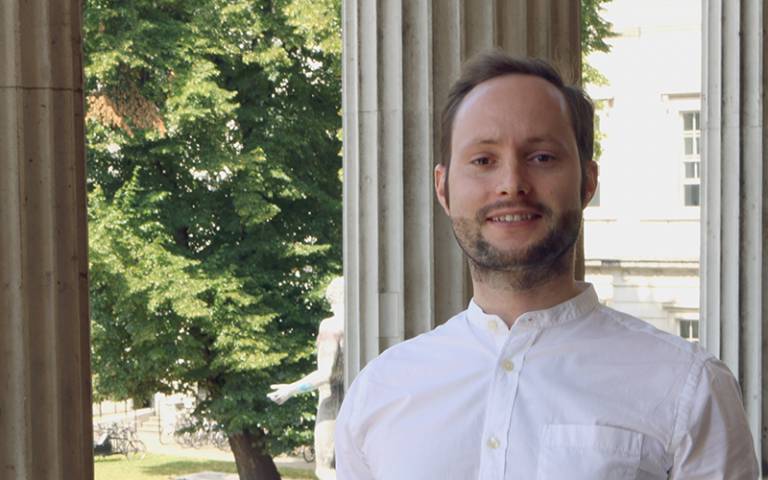John Hales wins £1.2m UK Research and Innovation Future Leaders Fellowship
23 April 2020
UK Research and Innovation has awarded Dr John Hales a Future Leaders Fellowship to use virus lasers to reinvigorate process analytical technology for biological manufacturing

John first began the process of applying for a UKRI Future Leaders Fellowship in April 2018. After passing an internal BEAMS School selection panel to become one of those put forward, the application went through several steps before John presented his proposal to an interview panel. The award is for four years, initially, and may then be extended for up to a further three years. The award also includes funding for a postdoctoral researcher as well as equipment, including a streak camera.
Following on from John’s previous work that has been a collaboration between UCL Biochemical Engineering and the London Centre for Nanotechnology, this project will see a collaboration with SwissFEL, the X-ray free-electron laser facility at the Paul Scherrer Institute in Switzerland, who are providing support in-kind.
“The long-term vision is to establish virus-laser technology as a once-in-a-generation analytical technology that will have a transformative impact in biological manufacturing, clinical diagnostics and environmental sensing. In this fellowship, my overarching goal is to reinvigorate process analytical technology for biological manufacturing by using virus lasers to directly monitor the critical quality attributes that affect the safety and efficacy of biopharmaceutical products at all stages of the bioprocess.
I will also undertake multidisciplinary research into virus lasers at the interface of synthetic biology and laser physics which will pave the way for future innovations. I plan to achieve lasing at ultra-low concentrations, establish a biological structure - laser function link using cutting-edge optical detection and the world's leading free-electron laser facility for photobiology, and then use these techniques to investigate in-depth the mechanisms behind a novel detection paradigm unique to virus lasers.” John Hales, March 2020
Further information
- The full UKRI news feature can be found here
- Further information about UKRI funding
- John Hales' Virus Laser Detection Article Published in Nature Communication
 Close
Close

